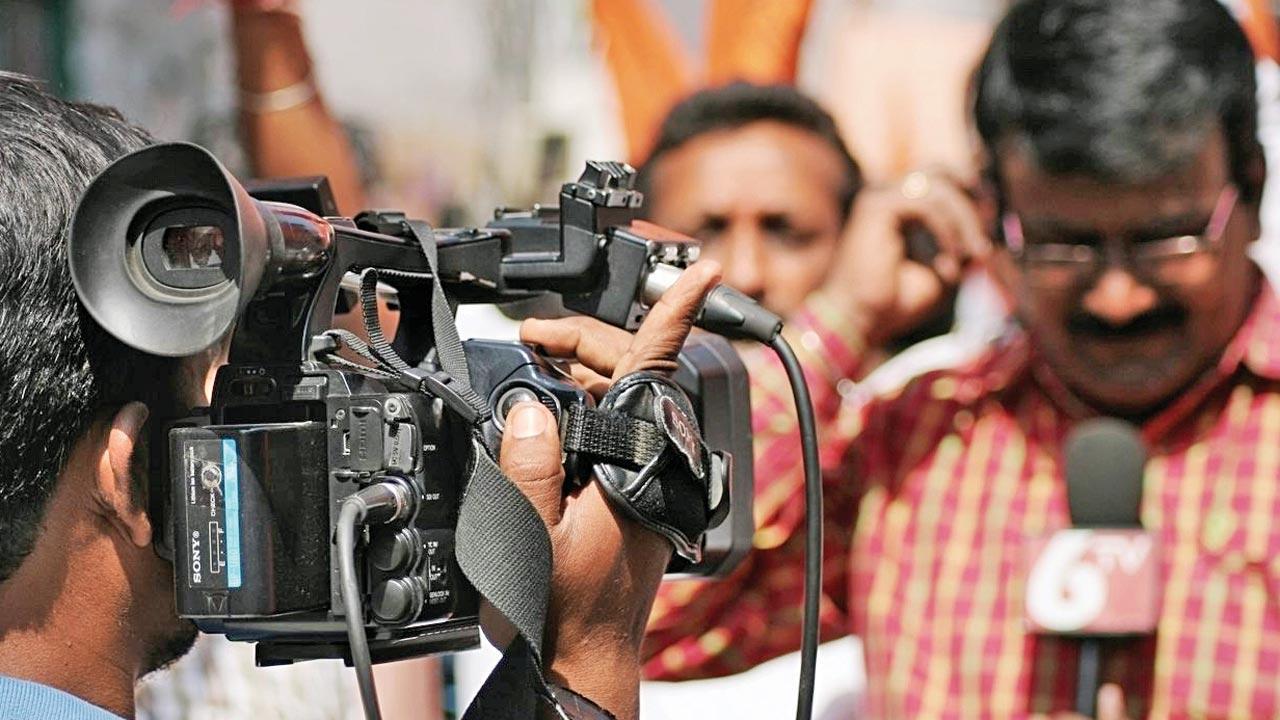It’s time we accepted that the new India we are all marching towards has no need for unbiased reporting

I believe the time for unbiased journalism has passed because we should follow the government’s cue and start believing our ministers more often. Representation pic
 I didn’t react with horror when I found out that police in New Delhi—the most trusted, efficient, and honest force in the world, according to the New Delhi police—had raided the homes of journalists linked to a news organisation. Apparently, the organisation in question was known for its scrutiny of the respected government of India, so the raids were said to be warranted and completely necessary. I didn’t react with horror because it made me wonder if the time for journalism has passed. Do we really need journalists to tell us what’s going on when there are so many other tools for the dissemination of information at our disposal?
I didn’t react with horror when I found out that police in New Delhi—the most trusted, efficient, and honest force in the world, according to the New Delhi police—had raided the homes of journalists linked to a news organisation. Apparently, the organisation in question was known for its scrutiny of the respected government of India, so the raids were said to be warranted and completely necessary. I didn’t react with horror because it made me wonder if the time for journalism has passed. Do we really need journalists to tell us what’s going on when there are so many other tools for the dissemination of information at our disposal?
ADVERTISEMENT
Critics of the respected government of India repeatedly point out that India has slipped to its worst position on record in the Press Freedom Index this year (161 out of 180 countries), published by Reporters Without Borders. I have never mentioned this statistic more than a few dozen times because I am categorically not a critic of the respected government of India. In fact, as the two or three long-time readers of this column may be able to attest, I have always been a proud supporter of the government and have often declared it to be the most outstanding government in the world.
To get to the point, I didn’t see why reports of these raids on journalists mattered given how little the people of India care about journalists or journalism. If they did, newspapers in Bombay wouldn’t shut down every other year, independent news organisations wouldn’t feel the need to ask for donations to stay alive, and there would be residents on the streets asking why they are being denied access to unbiased information that affects every facet of their lives. Given that the only people protesting are other journalists, in India and abroad, it’s safe to assume Indians aren’t interested in a free press.
I believe the time for unbiased journalism has passed because we should follow the government’s cue and start believing our ministers more often. If they tell us things have improved for millions of us, we should accept that as fact. If they say no children died in hospitals across Maharashtra this past month, we should disbelieve reports to the contrary. If they tell us LPG costs are high because global oil companies have raised prices, we should pay up without complaints. And if they refuse to talk about whether a certain neighbouring country may or may not be encroaching upon miles of Indian territory, it’s probably because this is just a rumour.
The bad thing about journalism is how it raises questions. It makes us dig deeper into issues like taxes, where they are spent, how they are distributed, and by whom. It makes us wonder why we give away so much of our income in exchange for poor roads, poor public transport, poor healthcare and poor sanitation. It makes us look at who our elected representatives are, and why they aren’t doing what is in our best interests when that is the job they were hired to do. It’s obvious we no longer need those inconvenient questions or troubling answers, because we have probably reached a point of perfection in our country’s history. Things have never been better for us, and we simply haven’t noticed it yet.
I am beginning to look forward to a time when all our newspapers have ceased to exist, news channels have been transformed into platforms for reality television, and the job of a journalist has become redundant. I believe it is only then that we can awake to a new India, a country where ministers don’t feel the need to explain their actions via press conferences, and where fundamental rights can be amended every other week for the greater good. History has, time and again, shown how effective this approach is. It happened when Mussolini took control of Italy, Stalin led the Soviet Union, and Hitler helped Germany become a great nation for a couple of weeks. There were no journalists to question them or their motives either, which is why their stories ended so well. It’s
what gives me hope for a ‘Journalism Mukt Bharat’ too.
Finally, we should all ask ourselves a question: Just because our government has a problem with minorities, Dalits, students, women, journalists, non-vegetarians, or people living in South India, doesn’t mean it will someday have a problem with the rest of us, does it? Today’s India is an inclusive India.
When he isn’t ranting about all things Mumbai, Lindsay Pereira can be almost sweet. He tweets @lindsaypereira
Send your feedback to [email protected]
The views expressed in this column are the individual’s and don’t represent those of the paper
 Subscribe today by clicking the link and stay updated with the latest news!" Click here!
Subscribe today by clicking the link and stay updated with the latest news!" Click here!







